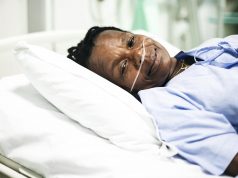Annual respiratory syncytial virus-associated hospitalization rates varied from 35.7 to 132.3 per 1,000 children aged younger than 6 months
By Elana Gotkine HealthDay Reporter
FRIDAY, July 14, 2023 (HealthDay News) — American Indian/Alaska Native (AI/AN) children experience high rates of respiratory syncytial virus (RSV)-associated acute respiratory illness (ARI) hospitalization, according to a study published online July 14 in Pediatrics.
Jessica E. Atwell, Ph.D., M.P.H., from the Johns Hopkins Bloomberg School of Public Health in Baltimore, and colleagues conducted active, facility-based surveillance for ARI among hospitalized AI/AN children in November 2019 to May 2020. A total of 324 children younger than 5 years old from Chinle, Arizona (Navajo Nation); Whiteriver, Arizona (White Mountain Apache Tribal lands); and Anchorage and the Yukon-Kuskokwim (YK) Delta regions of Alaska who met the World Health Organization case definition for extended severe ARI were enrolled.
The researchers found that 53 percent of the children tested RSV-positive. One-third of RSV-associated hospitalizations occurred in infants younger than 6 months. The mean length of stay varied from 3.5 to 5.7 days (Chinle and YK Delta, respectively) among those who were RSV-positive, and use of supplemental oxygen varied from 70 to 100 percent (Anchorage and Whiteriver, respectively). Per 1,000 children younger than 6 months old, the annual RSV-associated hospitalization rates ranged from 35.7 to 132.3 for Anchorage and YK Delta, respectively. For children younger than 5 years old, the rates ranged from 7.7 to 32.7 for Anchorage and YK Delta, respectively.
“These findings show that AI/AN children continue to experience high rates of RSV-associated ARI hospitalization,” the authors write. “Improvements in the socioeconomic determinants of health for AI/AN children and RSV-prevention products are urgently needed.”
Several authors disclosed ties to the pharmaceutical industry.
Copyright © 2023 HealthDay. All rights reserved.








